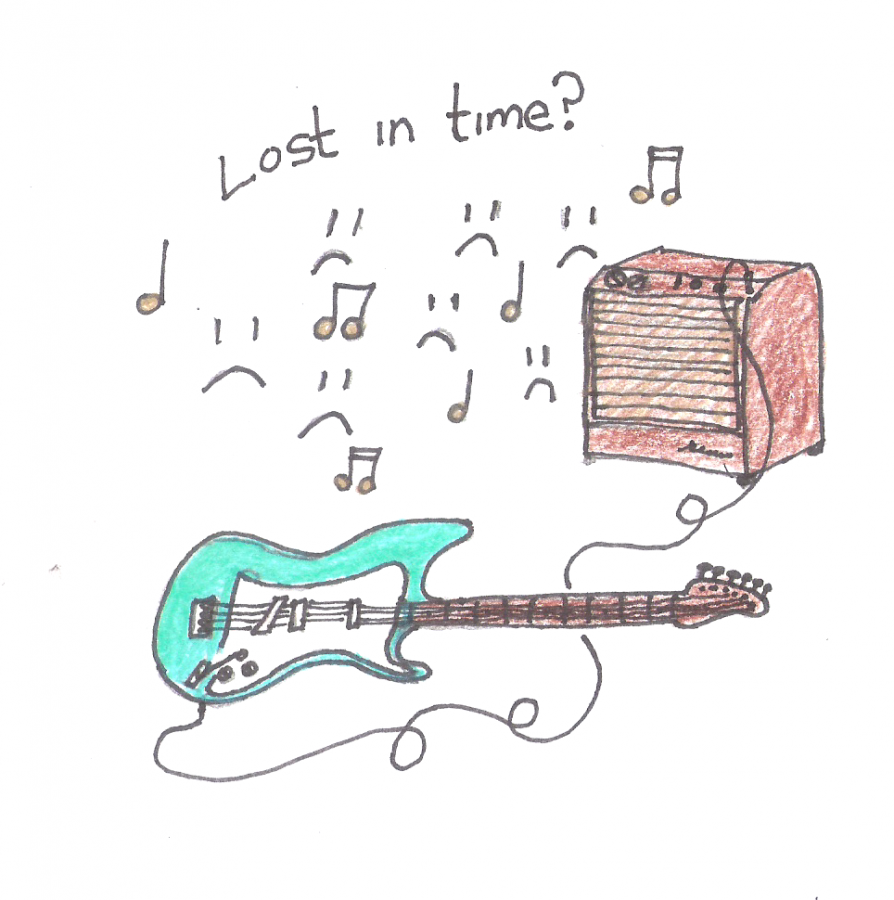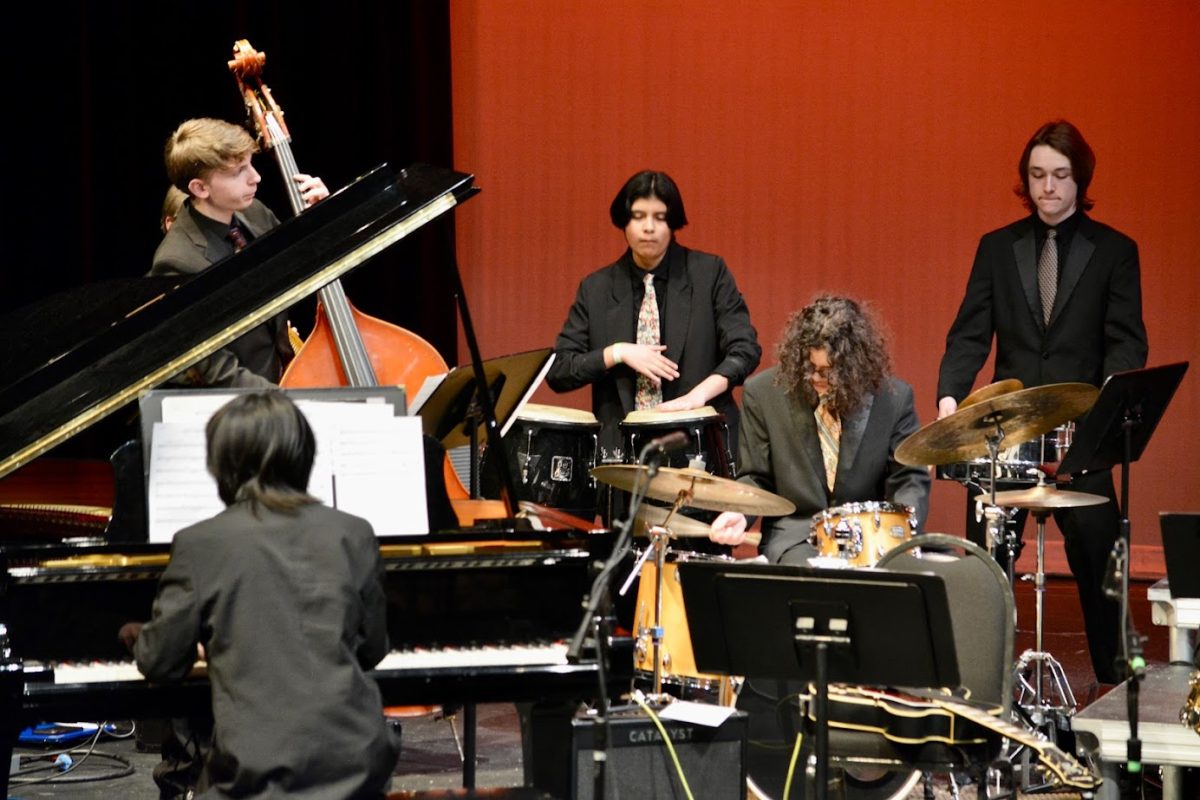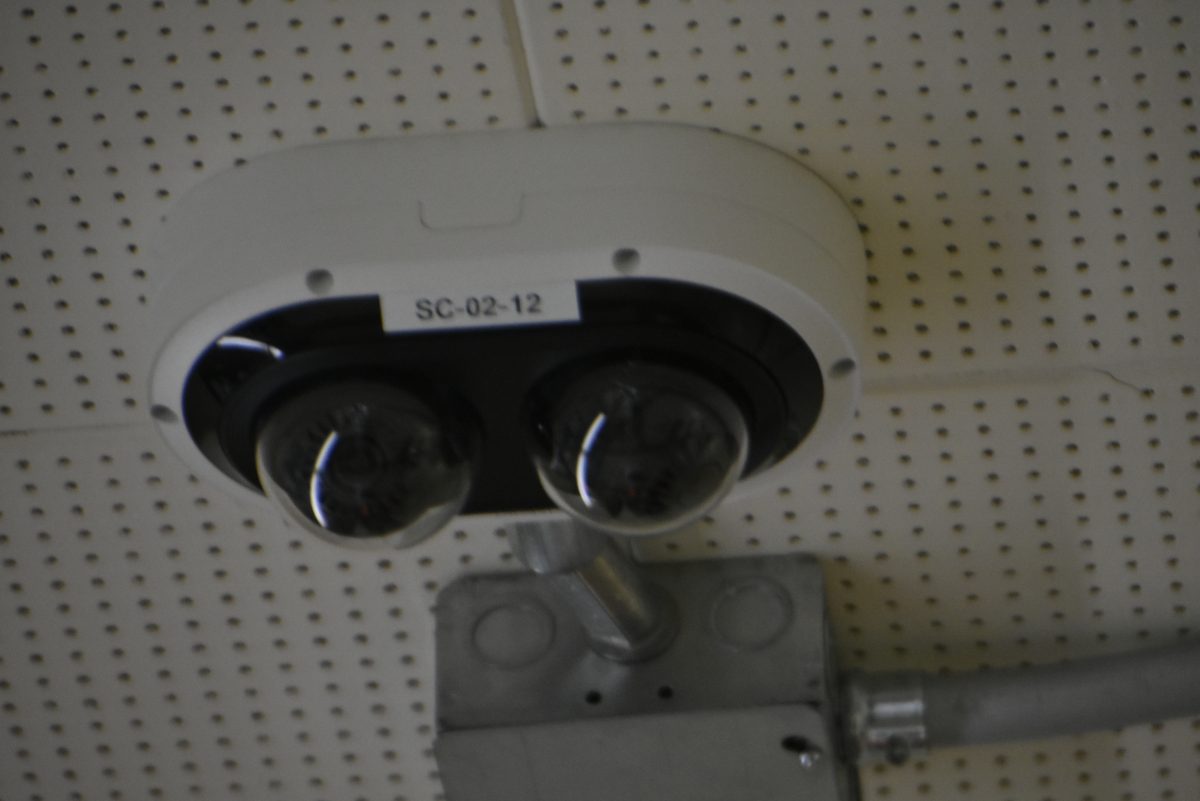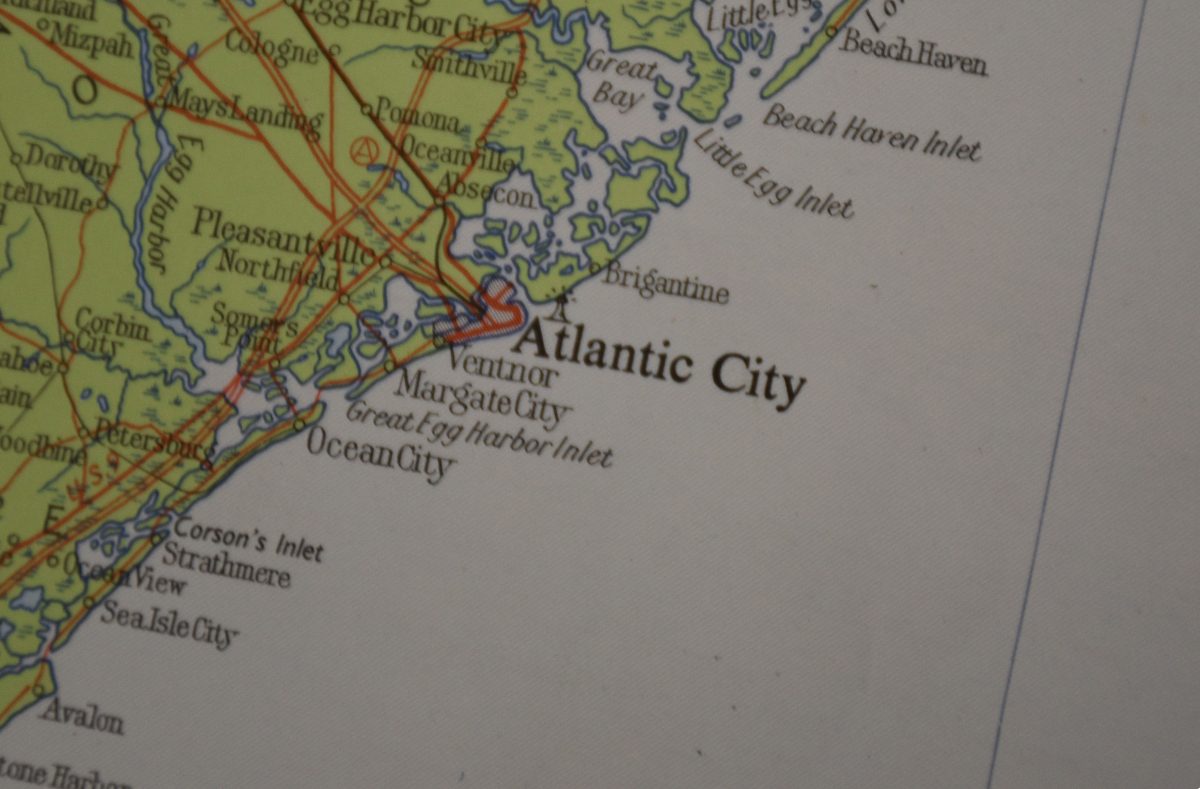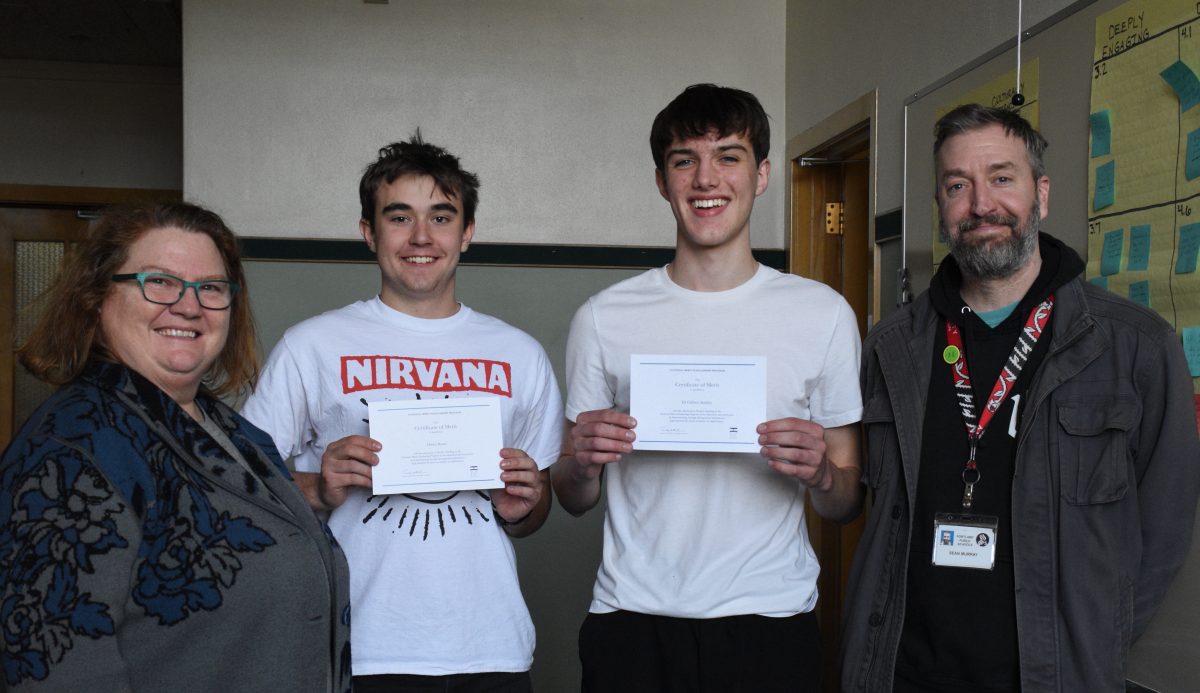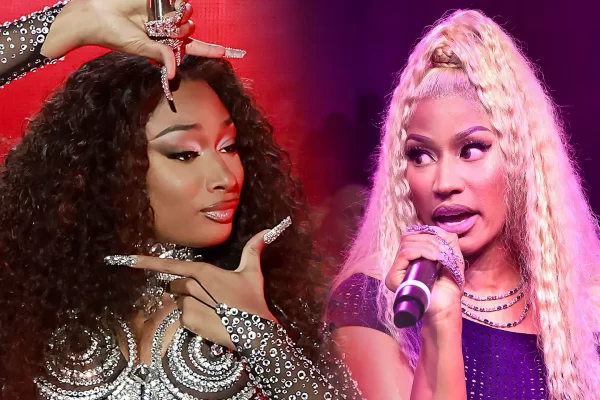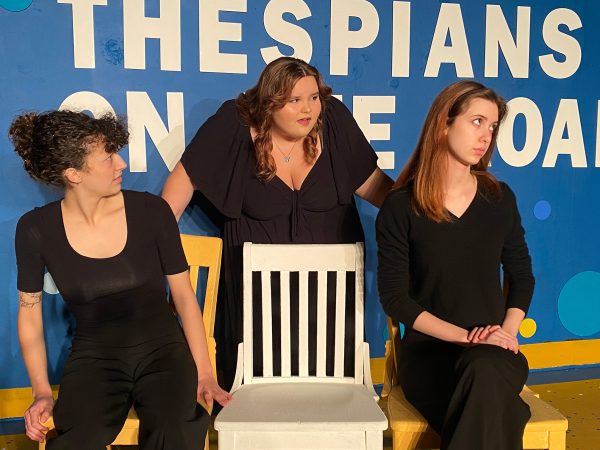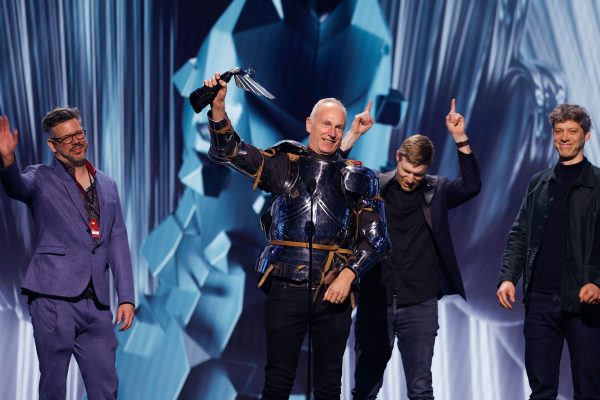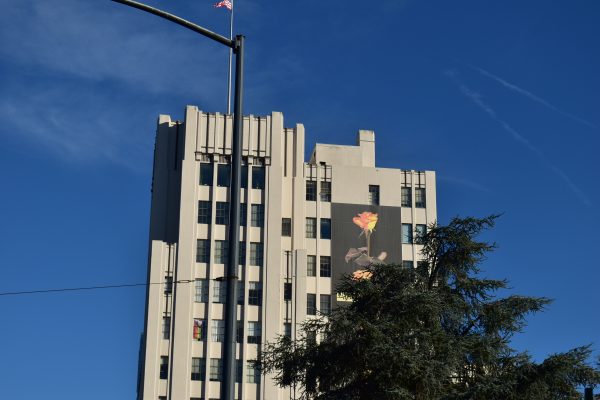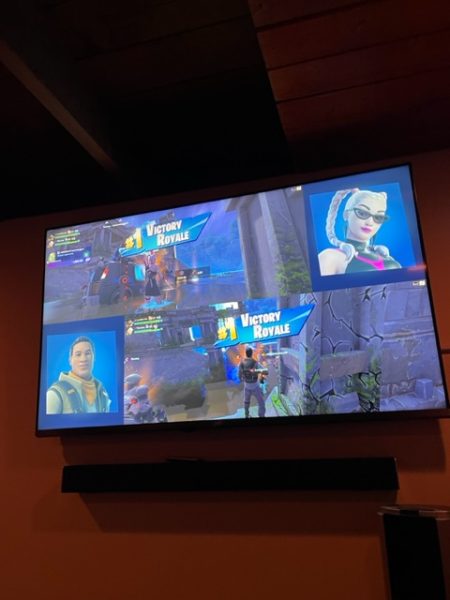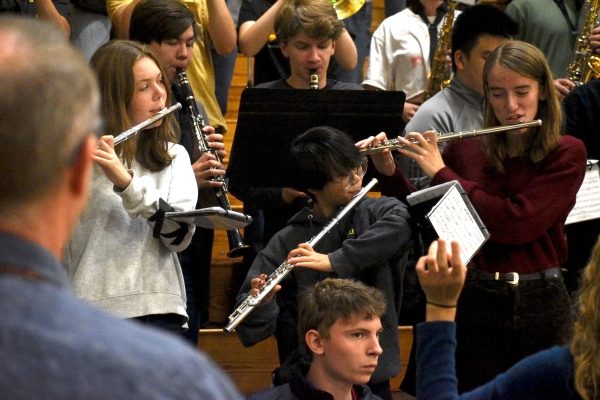Has Rock Music Been Lost in Time?
Clarion photo Colin Stevens
Is rock music dying off?
February 13, 2017
2016 was a watershed moment for hip-hop. After 2015 gave us Kendrick Lamar’s revolutionary jazz-rap opus “To Pimp A Butterfly” and the raw, socially conscious street rap of Vince Staple’s “Summertime ‘06,” many acclaimed artists who were previously able to rest on their laurels had to struggle to maintain their reputation as hip-hop began to rapidly progress. Cult artists, such as Danny Brown and Chance the Rapper, might have been the subject of major blog buzz at the beginning of the decade, but suddenly they were outranking Kanye West on year-end lists. Chance, in particular, has since become a household name for his accessible, hip and masterful blend of gospel, pop and street-rap (something West himself had attempted earlier that year with inferior results). The game was changing for the realms of hip-hop and R’n’B: Solange and big sis Beyoncé released critically lauded albums that dealt with gender and race issues in a nuanced and affecting way, and Frank Ocean made one of the most gloriously subtle and eclectic pop albums in recent memory. However, despite the onslaught of masterworks from artists both low- and high- profile in the hip-hop and R’n’B genres, rock stayed mostly silent.
The most foreseeable reason for this is that rock is not evolving with our culture. It has been a long time since a rock musician made a remotely insightful political statement or even attempted to do so. The closest we’ve had are the race politics alluded to by Mitski on “Your Best American Girl,” one of the best songs of 2016. More important, however, rock is not evolving sonically. There are modern rock artists with a distinctive style, but their individual statements rarely amount to anything akin to a cultural consensus as to where rock is heading and how their approach to the genre can become meaningful in a greater context. Trump’s election inspired talk of a punk revival, but the Trump era is different from the Nixon era: if you are opposed to Trump, chances are you are more hopeless than indignant, and probably more inspired to use music as a means of escapism than protest. So it’s not just that rock musicians aren’t making songs that resonate meaningfully in a cultural context–it’s very possible that, due to the primary race and gender of the performers as well as the genre’s stylistic confines, rock just isn’t relevant in today’s musical landscape.
The unfortunate thing is that some of us still love guitars. While I can be awed by a truly innovative release from any genre, my favorite bands usually utilize guitars to achieve emotional stimulation, even if they merely serve as a platform on which to deliver more sonically dense electronic components. Cloud Nothings and Japandroids are two modern indie bands who are notable for the humanity that they achieve through rock’s most essential instruments, and when it was announced that they were both releasing albums on the same day in 2017—Jan. 27—it seemed that rock music might experience a minor resurgence. Both bands released essential albums in 2012—“Attack On Memory” and “Celebration Rock” respectively—one, a moody, raw and surprisingly melodic document of pure angst, and the other an equally noisy yet meticulously assembled document of unadulterated joy. Cloud Nothings proceeded to release an impressive follow up to “Attack On Memory” while Japandroids spent longer perfecting their next masterpiece. These bands are two of the most promising and popular modern indie rock acts and, after two undisputed masterpieces, there was major hype surrounding whatever they would release next.
Well, Jan. 27 has come and gone, and what were supposed to be two of the year’s most major releases passed by without much fanfare, despite being high points in both bands’ discographies. “Near To The Wild Heart Of Life” is a more masterful version of its predecessor “Celebration Rock,” maintaining that album’s sincerity while widening its sonic palette and experimenting with song structure. Cloud Nothings’ “Attack On Memory” is a similar move towards a wider sonic canvas, adding emotions such as regret, nostalgia and elation to the adamant angst of their previous work. Yet while both “Near To The Wild Heart Of Life” (Japandroids) and “Life Without Sound” (Cloud Nothings) are impeccable in their own right, they don’t provide an easy answer to how rock can remain relevant in the context of current events, even if songs like “Modern Act” and “No Known Drink Or Drug” seem like the Platonic ideal of a modern rock ’n’ roll song. Many listeners and critics turned instead to the new album by D.C. punk band Priests “Nothing Feels Natural” because its political messages directly related to current political events. Others turned to trap rap trio Migos’ “Culture” in desperate need of a mainstream rap release to applaud, regardless of originality or subjective measures of quality.
Neither Japandroids or Cloud Nothings have an answer to where rock will go in 2017 and beyond. In an era defined by conflict and cynicism, however, it’s arguable that “Near To The Wild Heart Of Life” and “Life Without Sound” could be more impactful than any angsty defiant political statement, because the central theme of these albums is perseverance. “Life Without Sound” is a lyrically dense song cycle about battling depression and self-doubt, while “Near To The Wild Heart Of Life” is an album about living life in a full and meaningful way. While modern hip-hop and R’n’B have the ability to make far more specific and nuanced political statements based on their unique cultural perspective, the basic human feelings within a truly great rock song are timeless. There’s no need for rock to adapt to the current climate if it can convey these emotions so powerfully. Cloud Nothings and Japandroids aren’t an answer to the age-old question “Is rock dead?,” but they are a great reminder that, no matter how the sound that characterizes rock evolves, the feelings behind it are immortal.



